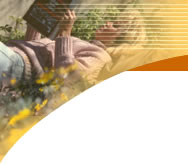

Helpful Links About Disabilities
for Students, Faculty and Staff
|
The Association of Higher Education and Disability (AHEAD) - This professional organization supports research and training for staff, faculty, administrators and other professionals who provide support and who are working in postsecondary education with college students who have disabilities. The college has an institutional membership as well as training materials, brochures, and texts in the Disability Services Resource Center in South Wing 120. www.ahead.org Center for Assistive Technology (CAT) - at SUNY at Buffalo is a resource for information about adaptive equipment and assistive software as well as compatibility with computer operating systems. Training on the use of this equipment is provided to consumers who have been referred to the CAT for diagnosis and support. www.cat.buffalo.edu Commission for the Blind and Visually Handicapped(CBVH) - provides financial aid and career support for individuals who are blind or visually impaired. Locally, life skills training is also provided in cooperation with the Elizabeth Olmsted. M.D. Center for the Blind and Visually Impaired, and post-degree employment training support is available through the Statler National Training Center. www.ocfs.state.ny.us\main\cbvh\cbvh107.htmThe Collegiate Consortium of Disability Advocates (CCDA) - Members of a consortium of disability advocates who represent colleges and agencies providing support to postsecondary students in western New York. This site provides materials from Effective College Planning (helpful information about high school to college transition): www.ccdanet.org The George Washington University HEATH Resource Center is the national clearinghouse on postsecondary education for individuals with disabilities. Supported by the U.S. Department of Education, HEATH provides training session and workshop information, develops training modules, publishes resource papers, fact sheets, directories, website information, and fosters networks among professionals and faculty with interests in postsecondary education and disability. www.heath.gwu.eduOffice of Civil Rights (OCR): provides guidance and oversight for the federal laws related to the American with Disabilities Act and the Rehabilitation Act of 1973: Students with Disabilities: Know Your Rights as You Prepare for Postsecondary Education - an excellent resource that delineates the responsibilities and rights of students with disabilities as they transition from high school to colleges and universities. www.ed.gov/offices/OCR/transition.html The New York State Vocational and Educational Services for Individuals with Disabilities (VESID): provides financial aid and career support for individuals with severe disabilities except blindness: www.vesid.nysed.gov
Center for Applied Special Technology (CAST): Founded at Harvard, CAST is a not-for-profit organization that uses technology to expand opportunities for all people, especially those with disabilities. This site includes information and materials on Universal Design for Learning as well as the National Center on Accessing the General Curriculum. http://www.cast.org/ |
Eligibility for Services | Prospective Students | Current Students | Faculty and Staff
Policy on Disability | Resources | FAQ's | Glossary